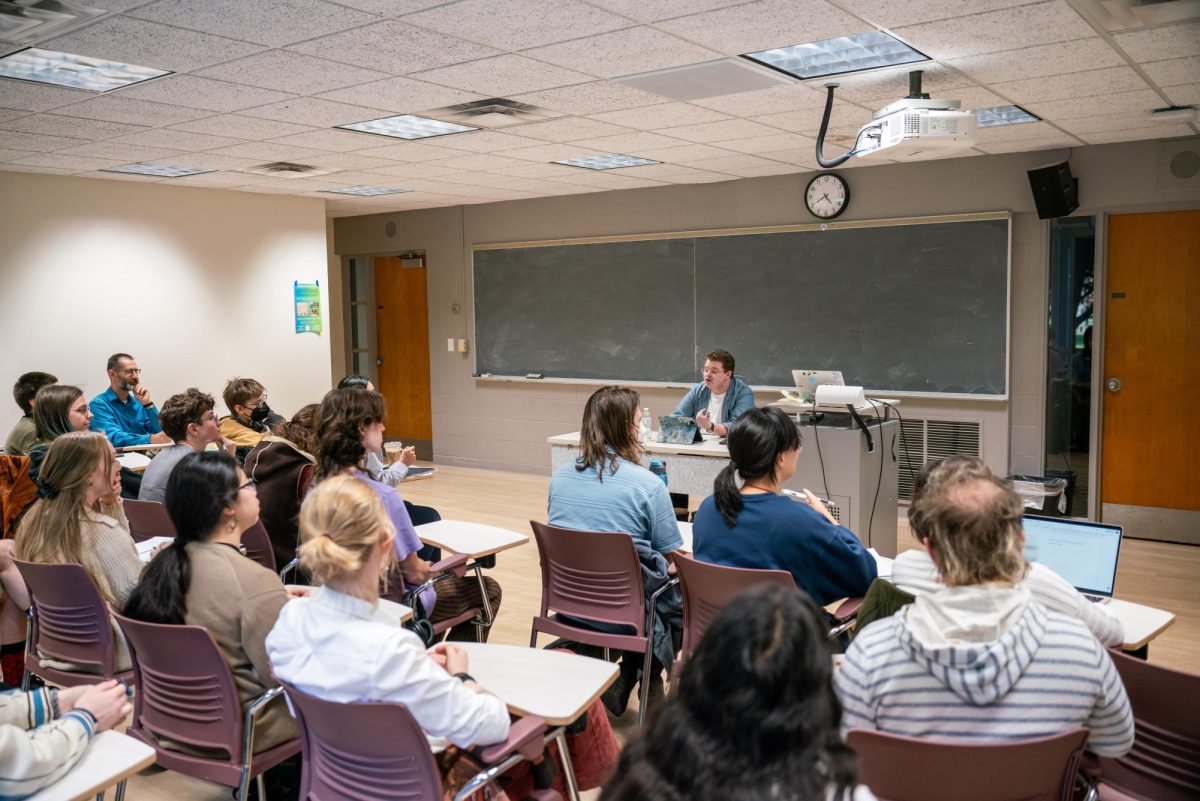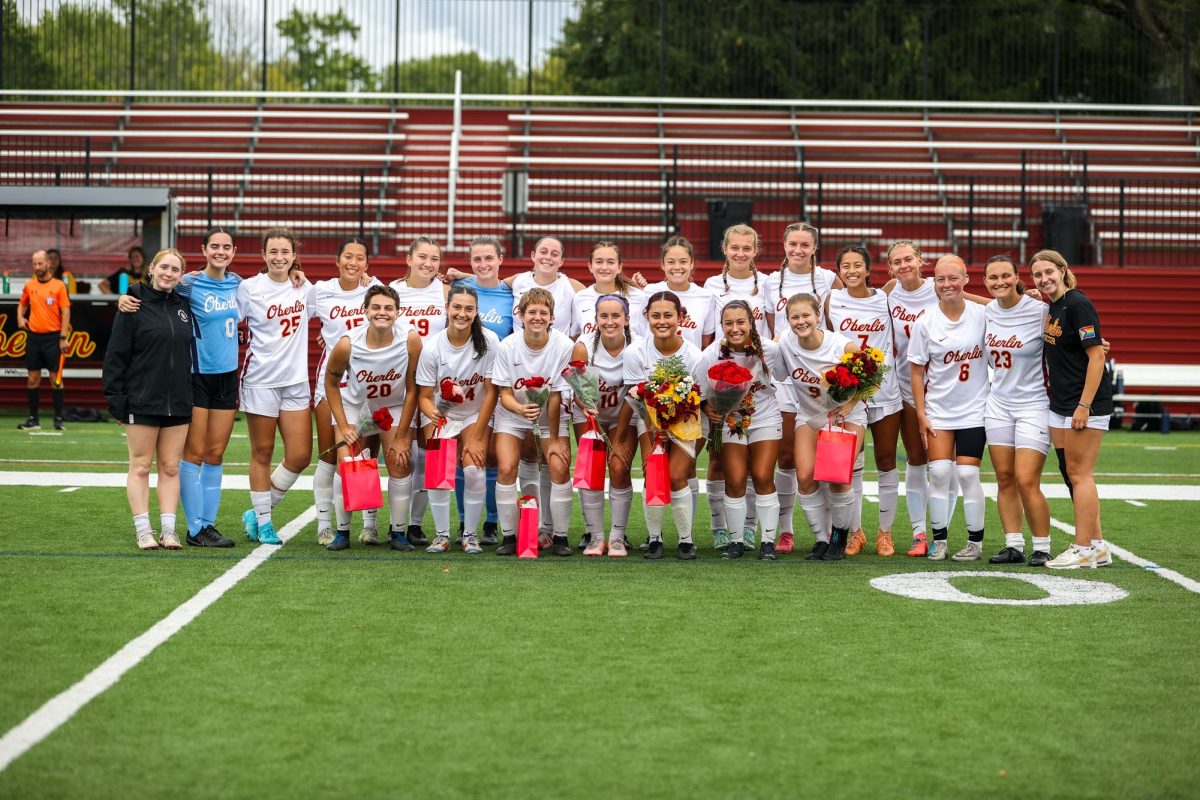Kutzen Allegations an Opportunity for Greater Oversight
September 11, 2015
Following news in early July that Trustee Thomas Kutzen, OC ’76, had been charged with fraud by the SEC and had stepped down as chair of the Investment Committee, the Office of Communications released a statement about the incident — that is, if one can call three short paragraphs released nearly two weeks after the story broke a statement. It included all the basics: Kutzen’s hedge fund AlphaBridge Capital Management neither confirming nor denying the SEC’s findings, his record of service to Oberlin and so on. Tucked at the end of a paragraph was a small but important note: “Kutzen has now retired from active service as a voting member of the Board but will continue to support the institution in a variety of volunteer capacities,” it read.
The Responsible Investing Organization also released a statement about the allegations. It read very differently.
Among the numerous changes RIO demanded was increased transparency when it comes to the selection for Board of Trustees members and the endowment management process in general. “Our college leaders have been incentivized to ‘follow the money,’” the statement read, “which has come at the expense of responsible management and governance that adheres to Oberlin’s supposed mission of fostering social consciousness.”
The administration’s response to RIO’s statement was a courtesy response from Sandhya Subramanian, vice president of General Counsel and Secretary, who forwarded the statement to the “appropriate Board of Trustees governance entity.” No one from the Board of Trustees has commented on RIO’s letter at press time.
With an incident like Kutzen’s alleged fraud making headlines within the Oberlin community and beyond, it comes as a surprise that he has been kept on the Board in a volunteer capacity, especially when the College knows the general attitude of the student body with regard to financial transparency and responsible investing. While his name is no longer listed on the Board of Trustees membership page, Trustee meetings are largely inaccessible to the student body, meaning students will remain in the dark regarding Kutzen’s influence over the Board and endowment issues.
The 35-member Board convenes four times per year during the months of October, December, March and June. Despite three of the four meetings occurring while classes are in session, students are not allowed to attend Board meetings or be privy to meeting minutes. The only way students can express concerns to the Board is through the Trustee-Student Forum, which requires students to sign up in advance to attend.
While the Office of the General Counsel and Secretary does outline trustee eligibility requirements and the nomination process on its website, the basis upon which the Board selects its members remains poorly understood — and among Oberlin’s student body, less information often brews greater suspicion. As reported in last week’s Review, College junior Jasper Clarkberg said, “We don’t think that the fraud allegations have anything to do with the Oberlin endowment; we just think that it’s indicative of a larger culture of wanting to hire people who will create the most profit for the endowment rather than wanting to hire people who have an ethical basis for the investments and will probably not commit fraud.” (“SEC Reaches Settlement with Trustee Charged with Fraud,” Sept. 4, 2015).
We cannot accuse the Board of knowingly electing a member accused of financial crimes. We can, however, push for greater oversight and student involvement in endowment management and election processes. Financial and administrative decisions are, as of now, rarely informed by student input, and if they do include student voices, those students often have very little influence relative
on the Board by virtue of the fact that they are professionals with financial expertise; the majority of students lack the relevant skills and experience to manage an endowment. But since the student body has little knowledge of the mechanics of Board meetings, how are students to feel comfortable with Kutzen’s presence and confident that the Board is thoroughly considering student voices in their decisions? The question here is one of simple access and understanding.
The organization of Board meetings needs to be re-examined in light of Kutzen’s SEC allegations. Opening up Board meetings to students is a solid first step, as is holding more accessible Trustee-Student Forums or even allowing students to elect — and not just nominate — Board members. These are feasible policy changes, and if the Board is truly interested in, as its website claims, “the welfare of the institution,” it would do well to reconsider its inside-looking-out approach to governance.


















